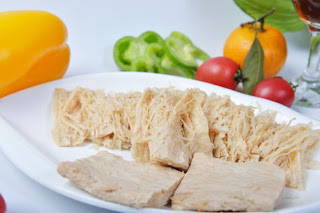Plant protein vs animal protein
Summary : Plant protein seems to be better for cardiovascular health and weight loss, while animal protein has an advantage in obtaining quantitative nutrition through a small amount of intake (food). For vegetarians, there is no need to worry about malnutrition caused by only supplementing plant protein (of course, the premise is to consume a variety of fruits and vegetables). Keywords: soy protein, plant protein , animal protein When it comes to protein supplementation, the most common way to think of is to drink milk, eat eggs, and eat meat. Supplementing protein through plants is obviously not what most people can think of . So is plant protein better than animal protein?









